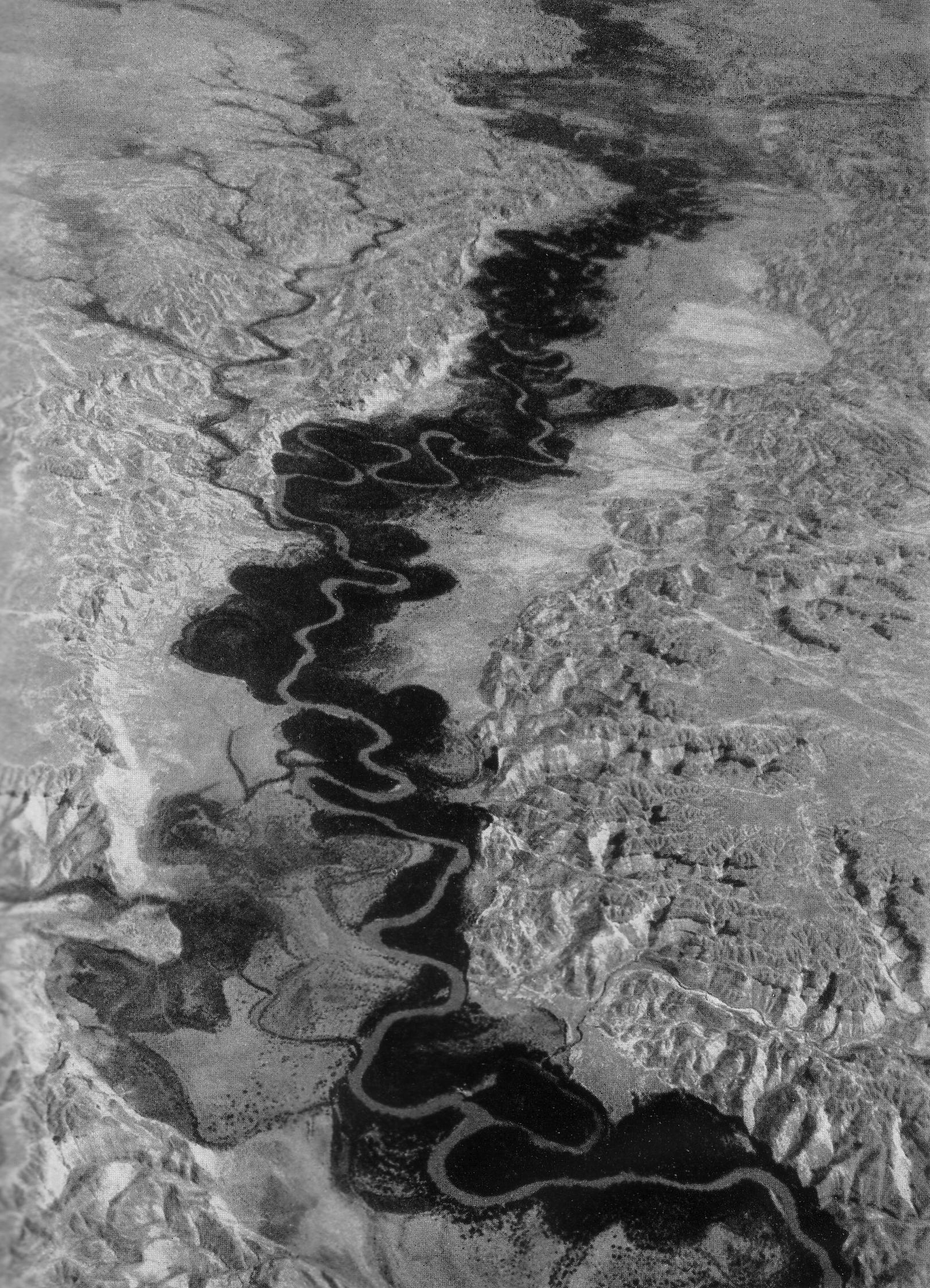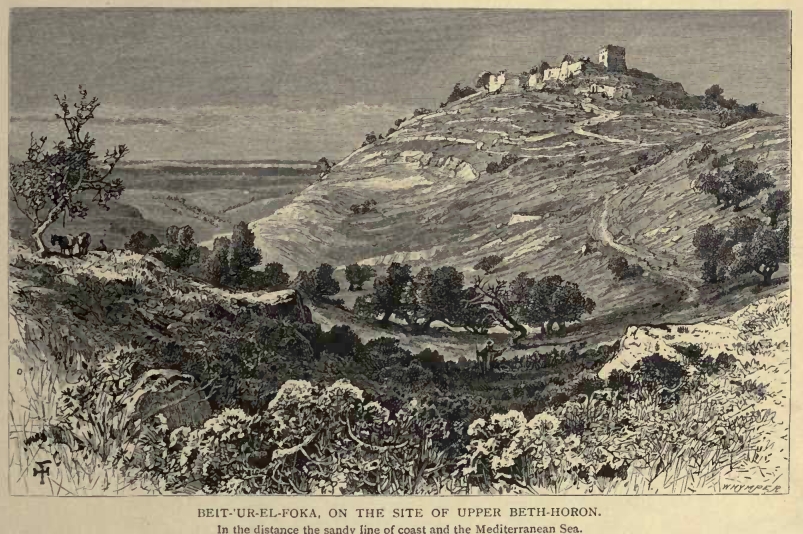|
Bacchides (general)
Bacchides ( el, Βακχίδης) was a Hellenistic Greek general; friend of the Syrian-Greek king Demetrius; and "ruler in the country beyond the river"— Euphrates. Demetrius sent him in 161 BCE to Judea with a large army, in order to invest Alcimus with the office of High Priest of Israel (''I Macc.'' vii. 8, 9). The peaceable Assideans credulously expected friendship from him; but, contrary to oath and covenant, he cruelly slew sixty of them (ib. vii. 16). Leaving Jerusalem, he made a slaughter-house of Bezeth (Bethzecha), and after handing the country over to Alcimus, returned to the king (ib. vii. 19, 20). Demetrius sent Bacchides back to Judea. A Greek army, under General Nicanor, had been defeated by Judas Maccabeus (ib. vii. 26–50) at the Battle of Adasa. Nicanor had been killed near Adasa. Bacchides was sent with Alcimus and an army of twenty thousand infantry and two thousand cavalry. Bacchides met Judas at The Battle of Elasa (Laisa). Judas was killed and hi ... [...More Info...] [...Related Items...] OR: [Wikipedia] [Google] [Baidu] |
|
 |
Hellenistic
In Classical antiquity, the Hellenistic period covers the time in Mediterranean history after Classical Greece, between the death of Alexander the Great in 323 BC and the emergence of the Roman Empire, as signified by the Battle of Actium in 31 BC and the conquest of Ptolemaic Egypt the following year. The Ancient Greek word ''Hellas'' (, ''Hellás'') was gradually recognized as the name for Greece, from which the word ''Hellenistic'' was derived. "Hellenistic" is distinguished from "Hellenic" in that the latter refers to Greece itself, while the former encompasses all ancient territories under Greek influence, in particular the East after the conquests of Alexander the Great. After the Macedonian invasion of the Achaemenid Empire in 330 BC and its disintegration shortly after, the Hellenistic kingdoms were established throughout south-west Asia (Seleucid Empire, Kingdom of Pergamon), north-east Africa ( Ptolemaic Kingdom) and South Asia (Greco-Bactrian Kingdom, Indo ... [...More Info...] [...Related Items...] OR: [Wikipedia] [Google] [Baidu] |
 |
Jordan River
The Jordan River or River Jordan ( ar, نَهْر الْأُرْدُنّ, ''Nahr al-ʾUrdunn'', he, נְהַר הַיַּרְדֵּן, ''Nəhar hayYardēn''; syc, ܢܗܪܐ ܕܝܘܪܕܢܢ ''Nahrāʾ Yurdnan''), also known as ''Nahr Al-Sharieat'' ( ar, نهر الشريعة), is a river in the Middle East that flows roughly north to south through the Sea of Galilee (Hebrew: כנרת Kinneret, Arabic: Bohayrat Tabaraya, meaning Lake of Tiberias) and on to the Dead Sea. Jordan and the Golan Heights border the river to the east, while the West Bank and Israel lie to its west. Both Jordan and the West Bank take their names from the river. The river holds major significance in Judaism and Christianity. According to the Bible, the Israelites crossed it into the Promised Land and Jesus of Nazareth was baptized by John the Baptist in it. Geography The Jordan River has an upper course from its sources to the Sea of Galilee (via the Bethsaida Valley), and a lower course so ... [...More Info...] [...Related Items...] OR: [Wikipedia] [Google] [Baidu] |
 |
Mattathias
Mattathias ben Johanan ( he, מַתִּתְיָהוּ הַכֹּהֵן בֶּן יוֹחָנָן, ''Mattīṯyāhū haKōhēn ben Yōḥānān''; died 166–165 BCE) was a Kohen (Jewish priest) who helped spark the Maccabean Revolt against the Hellenistic Seleucid Empire. Mattathias's story is related in the deuterocanonical book of 1 Maccabees. Mattathias is accorded a central role in the story of Hanukkah and, as a result, is named in the Al HaNissim prayer Jews add to the Birkat Hamazon (grace after meals) and the Amidah during the festival's eight days. History Mattathias was from a rural priestly family from Modi'in. He was a son of John (Johanan) and grandson of Simeon the Hasmonite or son of Hasmon and hence known as the Hasmonean. Further back, he was the great-grandson of Asmon or Hasmonaeus, a Kohen of the lineage of Joarib known for being the fifth grandson of Idaiah, son of Joarib and grandson of Jachin, in turn a descendant of Phinehas, third High Priest ... [...More Info...] [...Related Items...] OR: [Wikipedia] [Google] [Baidu] |
 |
Josephus
Flavius Josephus (; grc-gre, Ἰώσηπος, ; 37 – 100) was a first-century Romano-Jewish historian and military leader, best known for '' The Jewish War'', who was born in Jerusalem—then part of Roman Judea—to a father of priestly descent and a mother who claimed royal ancestry. He initially fought against the Romans during the First Jewish–Roman War as head of Jewish forces in Galilee, until surrendering in 67 AD to Roman forces led by Vespasian after the six-week siege of Yodfat. Josephus claimed the Jewish Messianic prophecies that initiated the First Jewish–Roman War made reference to Vespasian becoming Emperor of Rome. In response, Vespasian decided to keep Josephus as a slave and presumably interpreter. After Vespasian became Emperor in 69 AD, he granted Josephus his freedom, at which time Josephus assumed the emperor's family name of Flavius. Simon Claude Mimouni, ''Le Judaïsme ancien du VIe siècle avant notre ère au IIIe siècle de notre ère : ... [...More Info...] [...Related Items...] OR: [Wikipedia] [Google] [Baidu] |
|
Simon Maccabeus
Simon Thassi ( he, ''Šīməʿōn haTassī''; died 135) was the second son of Mattathias and thus a member of the Hasmonean family. Names The name "Thassi" has a connotation of "the Wise", a title which can also mean "the Director", "the Guide", "the Man of Counsel", and "the Zealous". This Simon is also sometimes distinguished as , , or (from Latin) . History Simon took a prominent part in the Jewish revolt against the Seleucid Empire led by his brothers, Judas Maccabaeus and Jonathan Apphus. The successes of the Jews rendered it expedient for the Seleucid leaders in Syria to show them special favour. Therefore, Antiochus VI appointed Simon ''strategus'', or military commander, of the coastal region stretching from the Ladder of Tyre to Egypt. As ''strategus'', Simon conquered the cities of Beth-zur and Joppa, garrisoning them with Jewish troops and built the fortress of Adida. After the capture of Jonathan by the Seleucid general, Diodotus Tryphon, Simon was elect ... [...More Info...] [...Related Items...] OR: [Wikipedia] [Google] [Baidu] |
|
|
Gazara
Gazara was, according to the Bible, a fortress of great strength in Judea that figures often in the Maccabean wars. In Judean history, Gazara is recalled as the ancient Gezer, the fortress captured by a pharaoh, who gave it to his daughter when she married Solomon. In the Maccabean chronicles, this place was the location where Judas pursued Gorgias (1 Maccabees 4:15). It was fortified by the Greek general Bacchides (1 Maccabees 9:52; Ant, XIII, i, 3). It was captured by Simon Maccabeus along with the city of Joppa and the Jerusalem citadel, which all belonged to the Seleucid empire. Simon built a palace at Gazara, and appointed his son, John, commander of his army (1 Maccabees 13:43). Recent excavations have uncovered the ruins of Simon's palace. Maccabean account also cited that Judeans started settling in Gazara, which has also been confirmed by archaeological evidence. A different account of Gazara's occupation is given in 2 Maccabees 10:32, where the capture is attributed t ... [...More Info...] [...Related Items...] OR: [Wikipedia] [Google] [Baidu] |
|
|
Thamnata
Khirbet et-Tibbâneh (''Hurvat Tibneh'' / ''Kh. Tibna'')( ar, خربة التبانة), sometimes referred to by historical geographers as the ''Timnah of Judah'' (), is a small ruin situated on a high ridge in the Judaean mountains, in the ''Sansan Nature Reserve'', above sea level, about 3 kilometers east of Aviezer and ca. 7 kilometers southeast of Bayt Nattif. The site is thought to have formerly borne the name Timnath (distinct from the Tel Batash-Timnah site associated with the biblical story of Samson in the lower foothills of Judea along the Sorek valley). ''Khirbet et-Tibbaneh'' or ''Timnah'' is perched upon a high mountain ridge rising up from the Elah valley and is where the episode of Judah and Tamar is thought to have taken place. Etymology Orientalists, Clermont-Ganneau and Edward Robinson, have made a point in showing the etymological Hebrew origins of certain Arabic place-names, saying that the Hebrew place-name Timnah was to be recognised in the Arabi ... [...More Info...] [...Related Items...] OR: [Wikipedia] [Google] [Baidu] |
|
|
Beth-el
Bethel ( he, בֵּית אֵל, link=no "House of God") is a biblical site. Beth-El, Beth El or Beit El may refer to the following Jewish synagogues: Canada * Beth El Synagogue (Newfoundland) China * Beth El Synagogue (Shanghai) Israel * Beit El Kabbalist yeshiva Morocco * Temple Beth-El (Casablanca) New Zealand * Beth El Synagogue, Christchurch United States (by state then city) Alabama * Temple Beth-El (Anniston, Alabama) * Temple Beth-El (Birmingham, Alabama) Connecticut * Beth El Synagogue (Waterbury, Connecticut) Florida * Temple Beth-El (Pensacola, Florida) Illinois * North Suburban Synagogue Beth El (Highland Park) Maryland * Congregation Beth El (Bethesda, Maryland) * Beth El Congregation (Pikesville, Maryland) Michigan * Temple Beth El (Alpena, Michigan) * Temple Beth El (Detroit) Minnesota * Beth El Synagogue (St. Louis Park, Minnesota) Missouri * Temple Beth El (Jefferson City, Missouri) New Jersey * Temple Beth-El (Jersey City, New Jersey) * ... [...More Info...] [...Related Items...] OR: [Wikipedia] [Google] [Baidu] |
|
 |
Beth-horon
Bethoron ( he, בֵית־חוֹרֹ֔ן, lit=house of Horon; grc, Ὡρωνείν), also Beth-Horon, was the name of two adjacent ancient towns strategically located on the Gibeon- Aijalon road, guarding the "ascent of Beth-Horon". The towns are mentioned in the Hebrew Bible and in other ancient sources: Upper Bethoron appears in ''Joshua'' and Lower Bethoron in ''Joshua'' and '' 1 Chronicles'' and I Maccabees 3:16. The ancient towns of Upper Bethoron and Lower Bethoron are identified respectively with the present day Palestinian Arab villages of Beit Ur al-Fauqa and Beit Ur al-Tahta, which are believed to preserve the ancient names. Etymology The Hebrew name Bethoron (Beit Horon, ) is derived from the name of an Egypto- Canaanite deity, '' Horon'', mentioned in Ugaritic literature. The city is mentioned among the cities and towns smitten by Sheshonq I in his inscription at the Temple of Karnak as Batae Houarn. History Upper Bethoron is mentioned several times in the He ... [...More Info...] [...Related Items...] OR: [Wikipedia] [Google] [Baidu] |